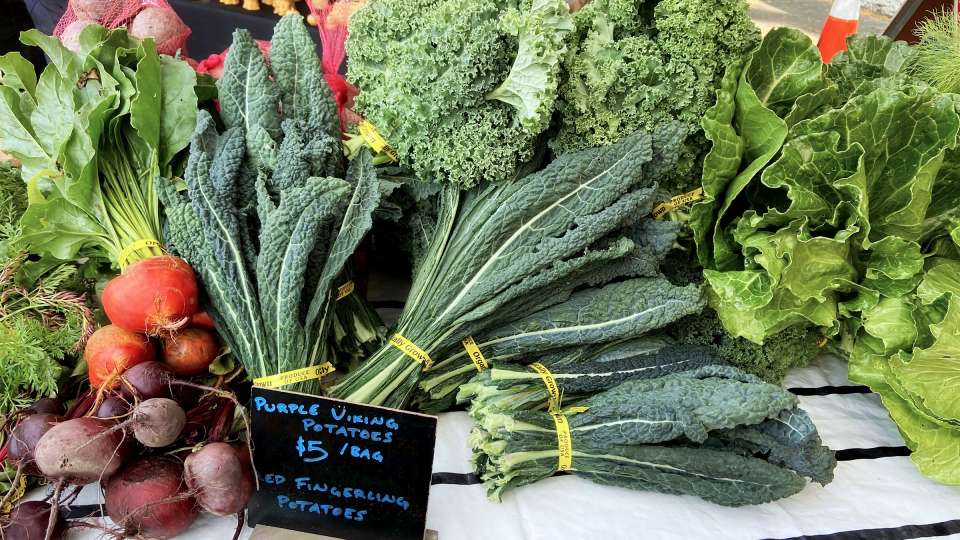
Sometimes, your feelings can feel out of control — but you can help improve your mood and resilience based on how much sleep you get, if you exercise and, yes, what you eat.
While eating specific foods won’t instantaneously change how you feel (that, my friends, would be a drug), over time choosing foods that improve brain health aids mood regulation, decreases the effects of short-term and chronic stress, and can even increase serotonin production.
What to eat to improve your mood (and why)
“Food has important effects on brain health and the ability of neurons to change and adapt,” says Sheri Mizumori, a psychology professor at the University of Washington who teaches a course on food and brain health. “It’s not like a pill. Foods’ effects are not going to be immediate, but there’s no doubt that food can have positive effects on mental and physical health.”
She recommends adding the following types of food to your diet.
Antioxidants
Eating food with antioxidants helps relieve stress and improve emotion regulation, Mizumori says. To understand one of the reasons why, it helps to know how oxidation works in your body.
Oxidation is a natural process where your cells take in oxygen and then leave behind free radicals, or oxygen molecules with a negative charge. Having some free radicals is healthy, but if you have too many (for example when stressed or when you eat foods high in saturated fats), they can damage your cells, affect your mood and impair your response to stress.
Another way eating antioxidants can help is by affecting neurogenesis in the hippocampus, or by creating new neurons in the part of your brain that helps you manage emotions and mood.
“We know when neurogenesis is higher, we have better memory, we’re more attentive and we have better mood regulation,” Mizumori says.
Put simply, eating antioxidants not only protects your brain but may also increase its ability to manage how you feel.
Antioxidant foods:
- Berries: blueberries, strawberries, raspberries and blackberries
- Avocados
- Nuts: walnuts and pecans
- Veggies: leafy greens, broccoli, Brussels sprouts, sweet potatoes, carrots and bell peppers
Anti-inflammatory foods
Like oxidation, inflammation is a natural process in the body. However, when inflammation persists for long periods of time and becomes chronic, it can contribute to the development of various diseases, such as heart disease, cancer and mental illnesses like depression.
The idea here is to eat foods that prevent and limit inflammation, such as those high in fiber and phytochemicals (plant chemicals), Mizumori says. Note that foods with antioxidants often reduce inflammation as well, so you’re getting two-for-one benefits when you eat those items.
Anti-inflammatory foods:
- Fruits: strawberries, blueberries, oranges and cherries
- Leafy greens: spinach, kale and collard greens
- Nuts: almonds and walnuts
- Deep water and fatty fish: salmon, mackerel, tuna and sardines
Tryptophan foods
Certain foods contain, and therefore can increase, tryptophan, an amino acid that is a precursor for creating serotonin, the feel-good chemical in your brain.
“The idea is if you feed your brain tryptophan foods, you can make more serotonin, which makes you feel better,” Mizumori says.
Just remember that eating these foods won’t give you an immediate spike in serotonin. Mizumori notes it takes time to notice a difference in mood based on what you eat.
Tryptophan foods:
- Poultry like chicken and turkey
- Tuna and fish
- Soy products
- Beans
What foods to avoid
It’s powerful that food can boost brain health, but on the flip side, what you eat can also decrease brain function.
Saturated fats, high fructose corn syrup, many processed foods, and refined sugar, stop neurogenesis and are correlated with an increase in oxidation and inflammation, Mizumori says.
High-fat foods, fried foods, refined sugars and processed foods can all decrease mood and energy. And too much salt can make you feel fatigued before you rehydrate.
The idea isn’t to cut out these items entirely, but rather to limit your intake and find swaps when you can.
“It’s really hard to hear, ‘Just cut out all of these foods.’ Most people don’t want to do it. I think that it is generally thought that if you eat well for most of the week, you can go out once a week and have whatever you want. The idea is to shift the distribution,” Mizumori says.

 Healthy ideas for your inbox
Healthy ideas for your inbox





